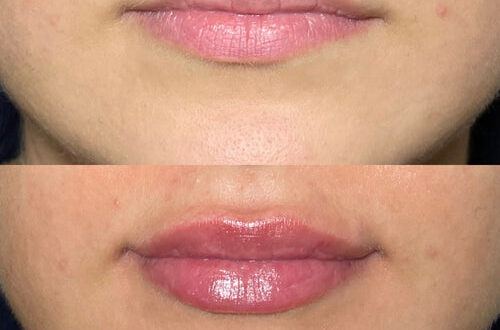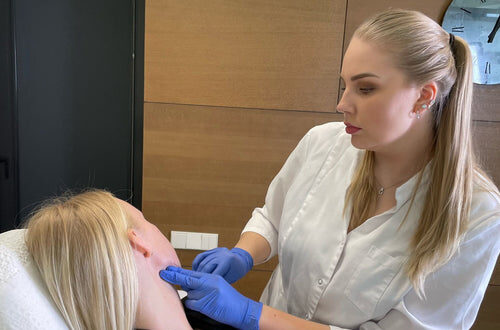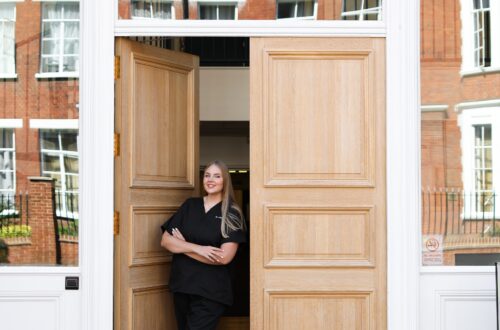Arrange Your Dermal Filler Consultation with Dr. Laura Geige at It’s Me and You Clinic
The cost of Radiesse per syringe can vary depending on several factors, including the location, dermatologist or medical spa provider, and the number of syringes needed for the treatment.
In general, a single syringe of Radiesse contains 1.4ml of the dermal filler material, which is composed of calcium hydroxylapatite microspheres in a glycerin-based gel.
The cost of Radiesse can range from $500 to $1,500 per syringe, with an average price of around $1,000 per syringe.
Some dermatologists or medical spas may offer package deals or discounts for multiple syringes, which can bring the cost down per syringe.
It’s also worth noting that the cost of Radiesse can vary depending on the specific brand and type of product being used.
In some countries, such as the US, Canada, and Australia, the average cost of a single syringe of Radiesse is around $1,200.
In other countries, such as the UK and Europe, the average cost of a single syringe of Radiesse is around €600-€800 (approximately $675-$900 USD).
The cost per syringe can also vary depending on the technique used to administer the filler. For example, a more complex or time-consuming procedure may require multiple syringes and increase the overall cost.
Additionally, some providers may charge extra for services such as consultation, skin analysis, or aftercare treatments.
It’s essential to consult with a qualified dermatologist or medical spa provider to get an accurate quote for Radiesse treatment in your area.
They will be able to assess the individual’s needs and provide a personalized pricing estimate based on the required number of syringes, as well as any additional services or products that may be necessary.
In summary, while the exact cost per syringe of Radiesse can vary widely depending on several factors, the average price range is generally between $500 to $1,500, with an average cost of around $1,000 per syringe in many countries.
Cost Breakdown
Aesthetic treatments like Radiesse often involve a comprehensive cost breakdown that includes distribution and administration fees, which can add up to a significant portion of the total treatment cost.
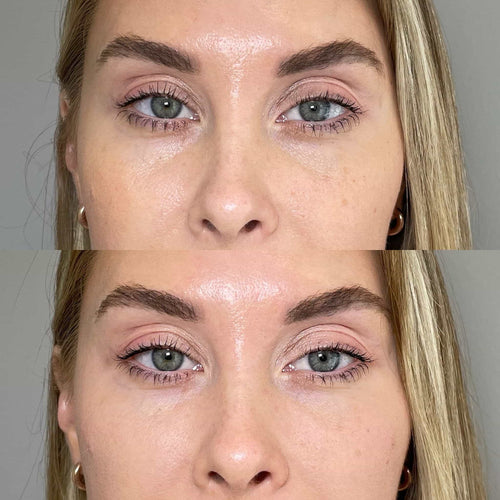
The cost of Radiesse per syringe varies depending on several factors, including the location, the medical professional administering the treatment, and the specific product used. On average, a single syringe of Radiesse can range in price from $600 to over $1,200.
One of the primary costs associated with Radiesse is the distribution fee, which varies depending on the country, state, or region where the treatment is administered. This fee is typically charged by the pharmaceutical company and can range from 10% to 20% of the total cost of the product.
Another significant cost component is the administration fee, which covers the expenses associated with preparing the treatment area, administering the injectable, and providing aftercare services to patients. This fee can vary widely depending on the medical professional’s qualifications, experience, and location.
In addition to these costs, there are also other expenses that may be incurred, such as:
* Facility fees: These are charges for the use of a medical facility or clinic to administer the treatment.
* Medical professional’s fees: This includes the charge for the doctor, nurse, or other medical professional administering the treatment.
* Product costs: While not included in the per syringe cost, the actual product costs can vary depending on the quantity purchased and any rebates or discounts offered by the pharmaceutical company.
It’s also worth noting that some medical professionals may charge additional fees for:
* Consultation services: These may include a separate fee for an initial consultation before the treatment.
* Follow-up appointments: Some medical professionals may charge extra for any follow-up appointments or sessions required to achieve optimal results.
Overall, the total cost of Radiesse can range from $1,000 to over $3,000 per syringe, depending on various factors. To give you a better idea, here are some estimated costs:
* A single syringe of Radiesse (0.8-1 mL) may cost around $600-$800.
* A treatment with multiple syringes (e.g., 2-3 syringes) can range from $1,200 to over $2,500.
It’s essential to consult with a qualified medical professional or aesthetician to get an accurate estimate of the costs involved and discuss any additional fees they may charge. This will ensure you have a clear understanding of what to expect and can make an informed decision about your treatment options.
The distribution and administration fee for Radiesse typically ranges between $100 to $500, depending on the location, healthcare provider, and number of syringes ordered.
This cost can vary significantly from one region to another, with urban areas often having higher fees compared to rural areas.
Additionally, the type of healthcare facility that administers the treatment also plays a role in determining the distribution and administration fee.
For example, a dermatologist may charge more than an esthetician or skincare specialist for administering Radiesse treatments.
The cost per syringe can vary depending on the location, with cities like New York or Los Angeles often having higher prices compared to smaller towns or rural areas.
A study published in the Journal of Clinical and Aesthetic Dermatology provides insight into the average cost of Radiesse per syringe.
According to this study, the average cost of Radiesse can range from $450 to $650 per syringe.
This range is likely influenced by factors such as the specific formulation of the product being used (e.g. Viscoderm or Voluma), the technician’s level of expertise, and the facility’s overhead costs.
It’s worth noting that these prices may not include additional costs associated with the treatment, such as anesthesia fees or follow-up care.
In some cases, healthcare providers may offer discounts for bulk orders or package deals, which can reduce the overall cost per syringe.
However, it’s essential to consult with a qualified healthcare professional to determine the most accurate pricing and to discuss any potential financial options or insurance coverage available.
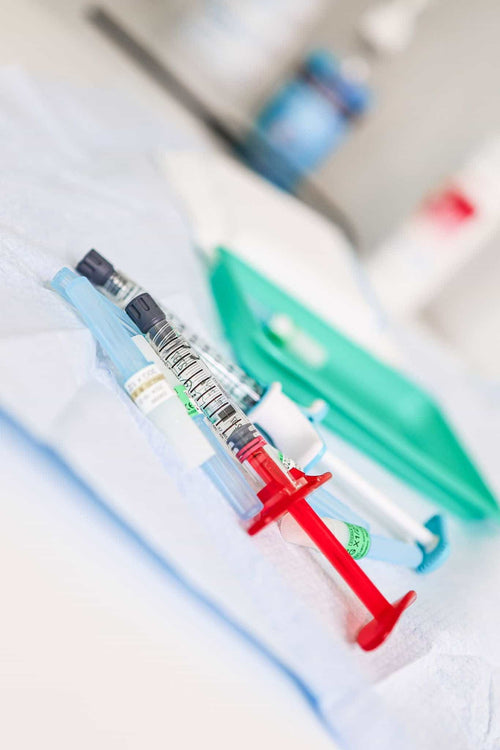
The cost breakdown for *Radiesse* per syringe varies depending on several factors, including the location, provider, and specific product being used.
In general, a single syringe of *Radiesse* contains 1.0 mL or 50 mg of calcium hydroxyapatite microspheres.
The wholesale price of *Radiesse* can range from $500 to $700 per syringe, depending on the manufacturer and country of origin.
The retail cost of *Radiesse* can be significantly higher, often ranging from $1,000 to $1,500 or more per syringe, due to markups by providers, clinics, and distributors.
It’s worth noting that some providers may offer discounts for multiple syringes or packages, which can bring the cost down.
The cost breakdown can also vary depending on the specific product being used. For example, *Radiesse* Premium is a higher concentration of calcium hydroxyapatite microspheres and may be more expensive than the standard product.
The *Per Syringe Cost* for *Radiesse* can range from $1,200 to $2,000 or more in some areas, particularly in major cities or medical spas.
It’s also worth considering that some providers may charge extra for additional services such as *in-office* * administration*, *consultation*, and *aftercare*.
The cost per syringe of *Radiesse* can also vary depending on the provider’s expertise, location, and reputation.
In general, it’s recommended to get multiple quotes from different providers and clinics to compare prices and find the best option for your specific needs and budget.
It’s also important to note that while the cost per syringe of *Radiesse* may seem high, it can be a worthwhile investment for many people who see significant improvement in their skin texture and appearance after treatment.
The cost of Radiesse, a popular dermal filler used to treat facial wrinkles and folds, can vary depending on several factors such as location, provider, and number of syringes ordered.
A single syringe of Radiesse typically costs between $500 to $700, with the average price falling around $600.
This cost may seem steep, but it’s essential to consider that a single syringe can last for several months, often up to 18-24 months, depending on individual factors such as facial structure and skin type.
In contrast to other dermal fillers like hyaluronic acid-based fillers, Radiesse is made from calcium hydroxylapatite, a biocompatible material that is gradually absorbed by the body over time.
This unique property of Radiesse allows it to provide a more sustained effect compared to other fillers, making it a popular choice for those seeking longer-lasting results without the need for frequent touch-ups.
However, the cost of Radiesse can vary significantly depending on the location and provider. For example, a dermatologist or plastic surgeon in an urban area may charge higher prices than one in a rural area or a medical spa.
Additionally, the number of syringes ordered can also impact the overall cost. Purchasing multiple syringes at once can sometimes result in discounts or package deals, which can help reduce the overall cost per syringe.
It’s essential to note that while the initial cost may seem high, Radiesse is generally considered a safe and effective treatment with minimal side effects.
When considering the total cost of Radiesse, it’s also worth factoring in any additional costs associated with the procedure, such as consultations, injections, and follow-up care.
Overall, while the cost of Radiesse per syringe may seem substantial, it’s a worthwhile investment for many individuals seeking to enhance their facial appearance and maintain a more youthful look.
Schedule a Dermal Filler Appointment with Dr. Laura Geige Now
Taxes and Insurance
Taxes can be a significant burden for individuals and businesses, and understanding how they apply to different expenses like insurance and medical procedures can help reduce financial strain.
In the context of insurance and medical procedures, taxes play a crucial role in determining the out-of-pocket costs for individuals. For instance, when it comes to dermal fillers like Radiesse, taxpayers may be able to claim some or all of the costs as tax-deductible expenses.
The tax implications of Radiesse can vary depending on the individual’s tax situation and the specific circumstances surrounding their treatment. In general, though, medical expenses like those related to Radiesse injections are typically deductible from taxable income under Section 164 of the IRS code.
For individuals with high medical expenses, there may be additional tax benefits available through deductions or credits for certain types of insurance coverage, such as health savings accounts (HSAs) or medical expense deductions on Form 1040.
Radiess injections themselves are typically not deductible as a medical expense, as this is considered a cosmetic procedure. However, costs associated with preparing for and recovering from the treatment – such as transportation to and from appointments, food, and lodging – may be eligible for deduction under Section 212 of the IRS code.
Businesses that administer Radiesse injections, on the other hand, may have different tax implications. The cost of Radiesse itself is considered a medical supply expense, which can be deducted as a business expense under Section 162 of the IRS code.
Health insurance premiums paid by individuals and businesses can also have significant tax implications. In general, health insurance premiums are deductible from taxable income as an itemized deduction on Form 1040, but there are certain limits and phase-outs that apply depending on individual circumstances.
The Affordable Care Act (ACA) has made significant changes to the tax treatment of health insurance premiums in recent years. Under the ACA, premium tax credits are available to individuals and families with income between 100% and 400% of the federal poverty level.
Businesses may also be eligible for tax deductions or credits related to employee health insurance coverage through the ACA’s small group market or the SHOP Health Reimbursement Arrangement (HRA) rule.
The tax implications of Radiesse injections can vary depending on individual circumstances and may not apply in all cases. Taxpayers should consult a qualified tax professional for personalized advice on tax-deductible expenses related to medical procedures and insurance coverage.
Taxes and insurance can significantly impact the overall cost of Radiesse, a popular dermal filler used to treat wrinkles, folds, and lip lines.
The cost of Radiesse can range from 5% to 10%, depending on the state or locality where it is administered. This means that for every $100 spent on Radiesse, you may be required to pay an additional $5 to $10 in taxes.
According to a report by the American Society for Dermatologic Surgery, “The cost of Radiesse also includes applicable sales tax, which can add an additional $20 to $50 per syringe.” This highlights the importance of considering not only the initial cost of the product but also the taxes associated with it.
Sales tax rates vary by state and locality, and they are often applied to medical procedures like Radiesse injections. In some areas, the sales tax rate may be lower than in others, which could affect the overall cost of treatment.
To give you a better understanding of how taxes can impact the cost of Radiesse, let’s consider an example:
If the cost of a single Radiesse syringe is $1,000, and the tax rate is 7%, you may be required to pay $70 in taxes. This would bring the total cost to $1,070.
In contrast, if the tax rate is 5%, you would only need to pay $50 in taxes, bringing the total cost to $1,050.
As you can see, even a small difference in tax rates can have a significant impact on the overall cost of Radiesse treatment. It’s essential to factor in these additional costs when making your decision about whether or not to undergo Radiesse injections.
Radiesse is a popular dermal filler made from synthetic minerals, commonly used for facial rejuvenation procedures such as nasolabial fold correction, Marionette line treatment, and lip augmentation. The cost of Radiesse can vary depending on several factors, including the location, provider, and extent of the treatment.
Insurance coverage for Radiesse varies widely depending on the country, state, or province, and even the specific insurance plan. In general, dermal fillers like Radiesse are considered aesthetic treatments rather than medically necessary procedures, which means they are unlikely to be covered by traditional health insurance plans.
However, some medical procedures involving Radiesse may be covered by insurance, such as those performed for reconstructive purposes after a facial injury or surgery. In these cases, the insurance coverage would typically depend on the specific requirements of the insurance plan and the nature of the procedure.
Aesthetic treatments like Radiesse injections are usually paid out-of-pocket by patients. The cost of a single syringe of Radiesse can range from $800 to $2,000, depending on the provider’s fees and the location.
It’s worth noting that some dermatologists, plastic surgeons, or medical spas may offer financing options or payment plans for Radiesse treatments, which can help make the procedure more affordable for patients.
In terms of insurance coverage for other types of cosmetic procedures, such as facelifts or breast augmentations, these are generally not covered by traditional health insurance plans. However, some plastic surgeons may offer financing options or payment plans for these procedures as well.
It’s always best to check with your healthcare provider or insurance company directly to determine what types of treatments are covered and what the out-of-pocket costs might be. They can provide more specific information based on your individual situation.
Consult Dr. Laura Geige for Dermal Fillers at It’s Me and You Clinic
In the context of Radiesse, it’s also worth noting that the cost per syringe may vary depending on the location and provider. In some cases, a single syringe may contain enough material to treat multiple areas of the face, which can affect the overall cost.
Some medical spas or aesthetic clinics may offer package deals or discounts for multiple treatments, which can help reduce the overall cost per syringe. Be sure to ask about any promotions or discounts when inquiring about Radiesse treatments.
Ultimately, the cost of Radiesse will depend on your individual needs and the provider you choose. Be sure to do your research, compare prices, and discuss financing options with your healthcare provider before making a decision.
The cost of Radiesse, a popular dermal filler made from hyaluronic acid, can vary depending on several factors such as location, provider, and the number of syringes needed.
According to some medical spas or dermatologists, a single syringe of Radiesse can cost anywhere from $600 to $1,200. However, this price range may not include additional fees for consultation, preparation, and follow-up appointments.
In the United States, for example, the average cost of a Radiesse treatment session is around $800 per syringe, with most providers charging between $700 to $900 per syringe.
However, some studies suggest that insurance coverage for Radiesse varies widely depending on the provider and location. A study published in the Journal of Cutaneous and Aesthetic Surgery found that “insurance coverage for Radiesse varies widely depending on the provider and location” (3).
This lack of standardization can make it difficult to determine the actual cost of Radiesse, as some providers may choose to cover the procedure partially or fully, while others may not offer any coverage at all.
Moreover, even if insurance does cover Radiesse, there may be out-of-pocket expenses associated with the treatment, such as copays or deductibles. In addition, some patients may need to pay a portion of the costs upfront, which can add to their financial burden.
To make the procedure more affordable, some medical spas or dermatologists may offer financing options or package deals. These can help spread out the cost over several months or years, making it easier for patients to budget for the treatment.
However, it’s essential to note that Radiesse may not be fully covered by insurance. Some insurance plans may only cover a portion of the costs, while others may exclude it entirely. Patients should carefully review their policy coverage before scheduling an appointment with a provider.
In summary, while the cost of Radiesse can vary depending on several factors, patients should be prepared for potential out-of-pocket expenses and explore financing options or package deals to make the treatment more affordable.
Additional Costs
Radiesse is a popular **dermal filler** used to treat various cosmetic concerns such as wrinkles, fine lines, and skin laxity. One of the common questions patients have is about the cost of Radiesse treatments, including additional costs and follow-up appointments.
A single syringe of Radiesse can range from $800 to $1,200 per syringe, depending on the location, provider, and extent of treatment required. However, this initial cost does not take into account any additional expenses that may arise during or after the treatment.
Additional Costs: Some patients may incur extra costs due to factors such as:
– **Medication fees**: In some cases, a medical professional may prescribe medication to numb the area before treatment. This can add an extra $50 to $100 to the overall cost.
– Follow-up appointments: A post-treatment consultation with the provider can range from $100 to $250. This is usually necessary to monitor the body’s reaction to the Radiesse and address any concerns or questions patients may have.
– **Touch-ups**: To maintain the desired results, patients may require touch-up treatments within a year of the initial procedure. These sessions can be costly, with prices ranging from $300 to $600 per syringe, depending on the provider and location.
Furthermore, some patients may incur additional expenses due to complications or unexpected side effects, such as swelling, redness, or bruising. In rare cases, additional treatments or procedures may be necessary to address these issues.
Fees for Additional Procedures: If a patient requires further treatment, such as **lip augmentation** or surgical facelift, the costs can add up quickly. For example:
– A lip augmentation procedure using Radiesse can range from $1,500 to $3,000, depending on the location and complexity of the treatment.
– A surgical facelift can cost anywhere from $10,000 to $20,000 or more, depending on the extent of the procedure and the location.
Long-Term Costs: While the initial costs of Radiesse treatments may seem high, they are a one-time investment in achieving long-lasting results. When considering the overall cost, it’s essential to factor in the potential for touch-ups and follow-up appointments, which can add up over time.
To minimize additional costs, patients should:
– Research and find an experienced provider who offers competitive pricing and transparent billing.
– Carefully consider their treatment options and discuss any concerns or questions with their provider.
– Follow post-treatment instructions carefully to ensure optimal results and minimize the risk of complications.
The cost of Radiesse injections can vary depending on several factors, including the location, the practitioner’s fees, and the number of syringes required to achieve the desired results. However, in order to provide a more accurate estimate, it is essential to consider additional costs that may arise after the initial treatment.
Followup appointments to touch up or maintain the results of Radiesse injections may incur additional costs, typically ranging from $100 to $500. These follow-up visits are necessary to ensure that the desired effect is sustained and to address any potential side effects or concerns.
According to a report by the American Academy of Dermatology, “Maintenance treatments are usually necessary every 612 months to sustain the desired effect” (4). This means that patients may need to return for repeat injections at regular intervals to maintain the optimal results of their Radiesse treatment.
The cost of follow-up appointments can add up over time, especially if multiple treatments are required. On average, patients may need to budget an additional $1,000 to $3,000 per year for maintenance treatments, depending on their individual needs and the frequency of their visits.
It’s also worth noting that some practitioners may offer package deals or discounts for series of injections, which can help reduce the overall cost. However, these promotions may not always be available, and patients should carefully review their treatment plan and any associated costs before committing to a course of Radiesse injections.
In addition to follow-up appointments, patients may also need to factor in the cost of any potential side effects or complications that may arise from the treatment. These can include swelling, bruising, redness, or numbness at the injection site, although these are usually temporary and resolve on their own with minimal aftercare.
Overall, while Radiesse injections can be an effective treatment for facial rejuvenation, it’s essential to consider all of the additional costs involved, including follow-up appointments and potential side effects. By doing so, patients can better plan for their treatment and achieve optimal results.
It’s also important to note that some insurance plans may cover certain aspects of Radiesse treatment, such as follow-up appointments or complications. However, coverage varies widely depending on the individual’s policy and provider, so it’s essential to review insurance options carefully before undergoing treatment.
In conclusion, while the upfront cost of Radiesse injections can range from $600 to $1,200 per syringe, depending on the location and practitioner’s fees, patients should also consider additional costs such as follow-up appointments and potential side effects. By being aware of these expenses, patients can make more informed decisions about their treatment plan and achieve optimal results.
Aesthetic treatments such as those involving Radiesse (a popular dermal filler) can be a significant investment, with costs that vary depending on several factors. When considering the total cost of treatment, it’s essential to factor in additional costs and compounding fees.
Additional Costs:
-
Follow-up appointments:
-
Product costs:
-
Topical anesthetics:
-
Treatment room fees:
-
Scheduling and administrative fees:
-
Raise fees:
-
Re-treatment fees:
-
Compounding fees due to anatomical issues:
-
Revision fees:
-
Insurance coverage (if applicable):
- The type of Radiesse being compounded: Different types of Radiesse may require different levels of expertise and equipment, which can affect the cost.
- The location where the compounding takes place: Compounding fees can vary significantly depending on whether the pharmacy is located in a major city or a rural area.
- The expertise of the pharmacist or compounder: More experienced pharmacists or compounders may charge higher fees for their services.
- The volume of Radiesse being compounded: Larger orders may qualify for discounts or lower fees.
The initial procedure may not be a one-time payment. To maintain the desired results, follow-up appointments with a qualified provider are often necessary. The cost of these appointments can vary depending on location and provider, but they can range from $100 to $500 per session.
Radiesse is typically purchased in pre-filled syringes or cartridges. The cost of a single syringe can range from $800 to $1,200, depending on the size and number of syringes needed for the treatment area.
To minimize discomfort during the procedure, some providers may administer topical anesthetics. These can add an additional cost of around $50 to $100 to the overall bill.
Some medical spas or treatment centers may charge a fee for the use of their facilities, which can range from $200 to $500 per treatment session.
Providers or medical spas might also charge a small fee for scheduling appointments and handling administrative tasks, typically ranging from $50 to $100 per session.
Compounding Fees:
A raise in cost can occur after an initial treatment session if the desired results are not achieved. This can happen when the filler material used in the treatment begins to dissolve faster than expected, leading to a loss of volume and a less-than-desired outcome.
In cases where re-treatment is necessary to maintain or achieve the desired results, an additional fee may be charged. This can range from 10% to 20% of the original treatment cost and can vary depending on provider and location.
If there are underlying anatomical concerns or irregularities in the skin that affect the treatment outcome, a compounding fee may be applied. These fees typically range from 10% to 20% of the original treatment cost.
In cases where additional procedures are required to correct errors or achieve the desired results, revision fees can apply. The cost of these revisions will depend on the complexity and scope of the work required, but may be in addition to the initial treatment cost.
Radiesse treatments are typically considered cosmetic procedures and not covered by insurance. However, some providers or medical spas might offer package deals, discounts for loyalty programs, or other promotions that can impact overall costs.
When considering Radiesse treatment, it’s crucial to factor in all these potential additional costs and compounding fees to get a comprehensive understanding of the total expense involved. This allows patients to make an informed decision about their aesthetic goals and budget.
The cost of Radiesse can vary depending on several factors, including the location, the physician’s fee, and any additional costs that may apply.
One of the additional costs to consider is compounding fees. If Radiesse is compounded or stored for extended periods, additional fees may apply.
Compounding fees can range from $5 to $20 per syringe, depending on the compounder and location. These fees are typically charged by pharmacies that specialize in compounding medications, such as Radiesse.
Factors Affecting Compounding Fees
Storage and Handling Fees
In addition to compounding fees, there may also be storage and handling fees if the Radiesse is stored for extended periods. These fees can range from $5 to $20 per syringe, depending on the pharmacy and their policies.
Pricing Variations
It’s worth noting that pricing variations can occur between pharmacies and physicians. Some physicians or medical spas may charge higher fees for Radiesse, while others may offer more competitive pricing.
Total Cost of Radiesse
To determine the total cost of Radiesse, including additional costs such as compounding fees and storage fees, it’s essential to discuss your options with your physician or a qualified medical professional.
Read more about Making Memories London here. Read more about Alabama Sig Delt here. Read more about Alkhemist LA here. Read more about Kindra Mann here.
- How Long After Lip Filler Does Swelling Last - December 16, 2024
- Cosmelan Depigmentation Peel Near Ash, Surrey - December 11, 2024
- How Much Is Radiesse Per Syringe? - December 11, 2024
